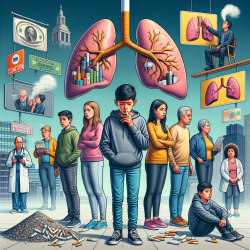Introduction
In the dynamic field of speech-language pathology, maintaining a high standard of education and practice is crucial, especially during challenging times. The recent scoping review titled Maintaining Health Professional Education During War: A Scoping Review by Dobiesz et al. (2022) provides valuable insights into how education in health professions can be sustained during war. This blog post explores the findings of this review and discusses how practitioners can enhance their skills and adapt these strategies to improve outcomes in online therapy services, such as those provided by TinyEYE.
Understanding the Challenges
The review conducted by Dobiesz et al. (2022) identified five major categories of barriers and interventions in maintaining health professional education during war: curriculum, personnel, wellness, resources, and oversight. These categories are not only relevant in war-torn regions but also in any context where educational continuity is at risk. The review analyzed 56 studies covering 17 unique wars across 17 countries, highlighting the global nature of these challenges.
Key Findings and Interventions
The thematic analysis revealed that the most significant barriers were related to curriculum and personnel. However, targeted interventions in these areas have proven effective in maintaining educational standards. The interventions include:
- Curriculum Adaptation: Developing flexible and context-specific curricula that can be delivered in various formats, including online platforms.
- Personnel Support: Providing training and support for educators to adapt to new teaching methods and technologies.
- Resource Allocation: Ensuring access to necessary educational materials and technology, even in resource-constrained environments.
- Wellness Programs: Implementing programs to support the mental health and well-being of both students and educators.
- Oversight and Policy: Establishing robust oversight mechanisms to ensure the quality and consistency of education.
Implications for Online Therapy Services
For practitioners in the field of online therapy, these findings offer valuable lessons. Here are some ways to implement these strategies:
- Innovative Curriculum Design: Create engaging and flexible online therapy modules that can be tailored to individual needs.
- Professional Development: Encourage continuous learning and adaptation to new technologies among therapists.
- Resource Management: Utilize digital tools and platforms to provide accessible therapy resources to clients and therapists.
- Focus on Well-being: Prioritize the mental health of both therapists and clients by integrating wellness practices into therapy sessions.
- Quality Assurance: Implement regular assessments and feedback mechanisms to maintain high standards of service delivery.
Encouraging Further Research
The findings from the review underscore the importance of ongoing research and innovation in maintaining educational and professional standards in challenging environments. Practitioners are encouraged to delve deeper into this area and contribute to the development of effective strategies that can be applied across various contexts.
To read the original research paper, please follow this link: Maintaining health professional education during war: A scoping review.










